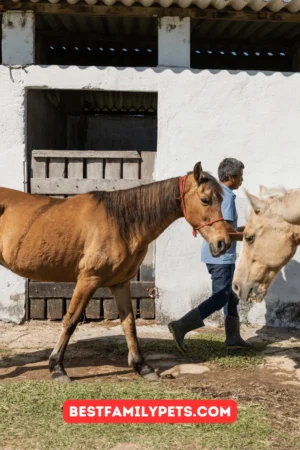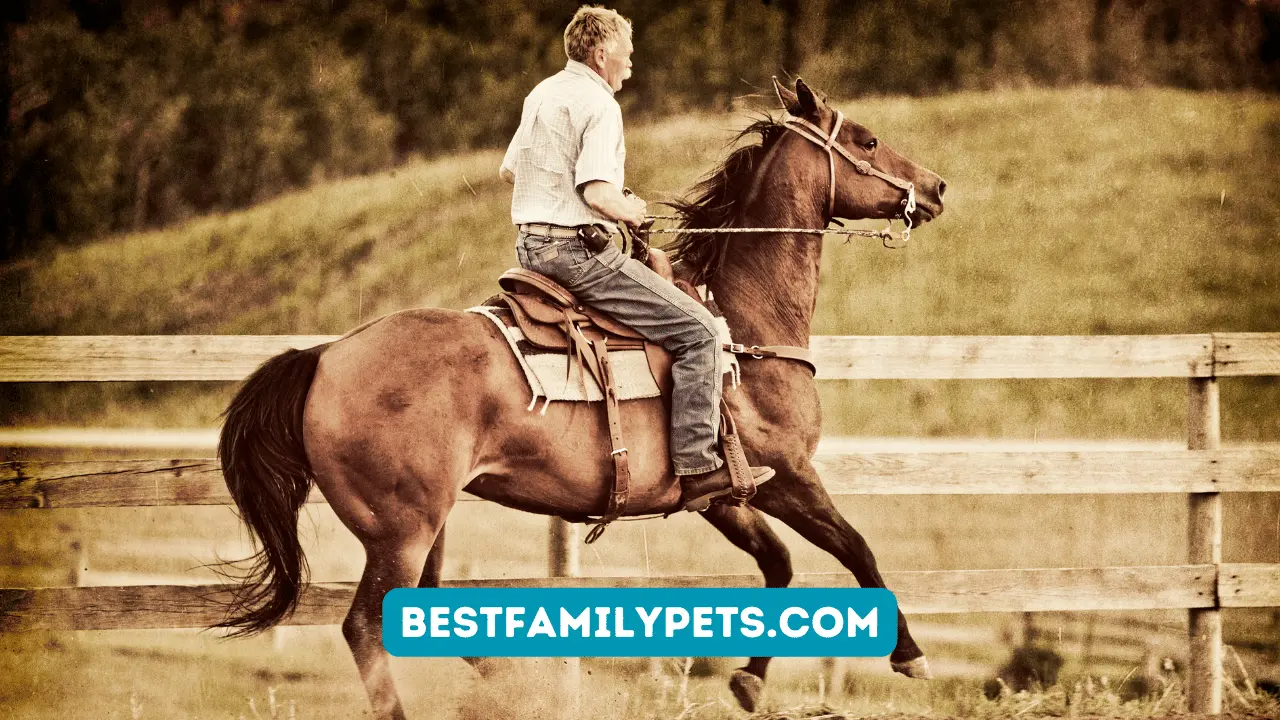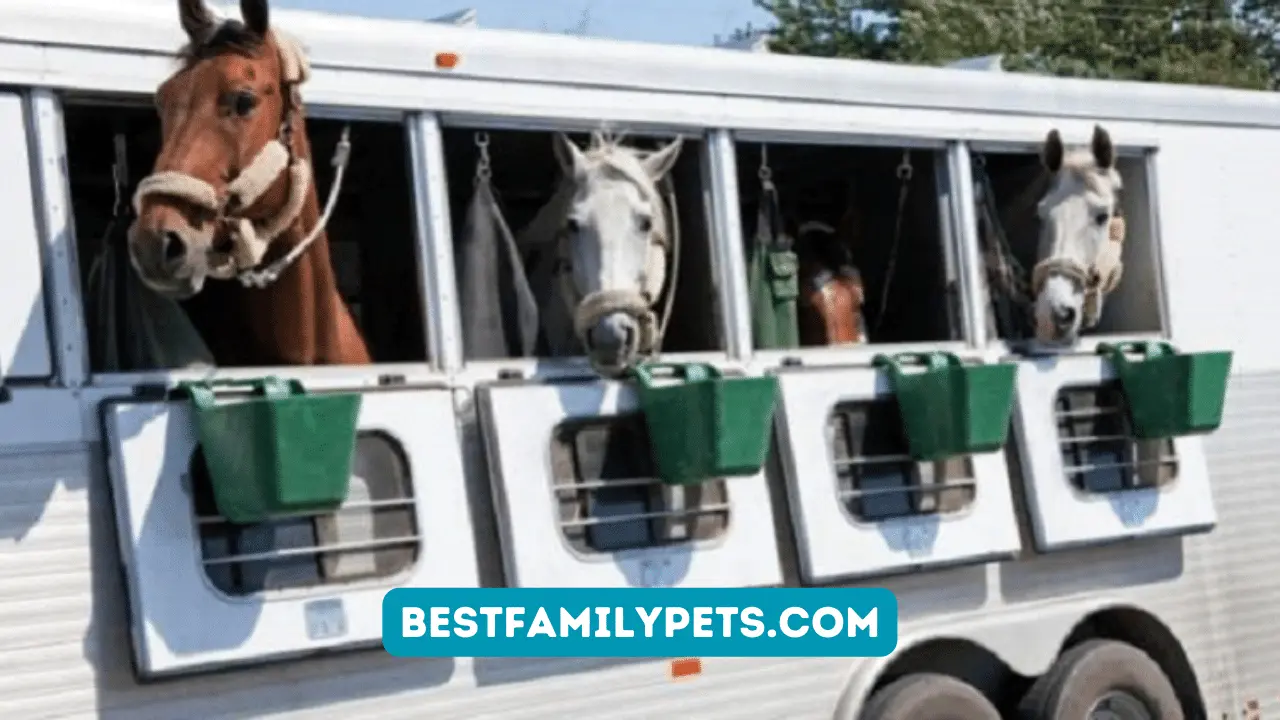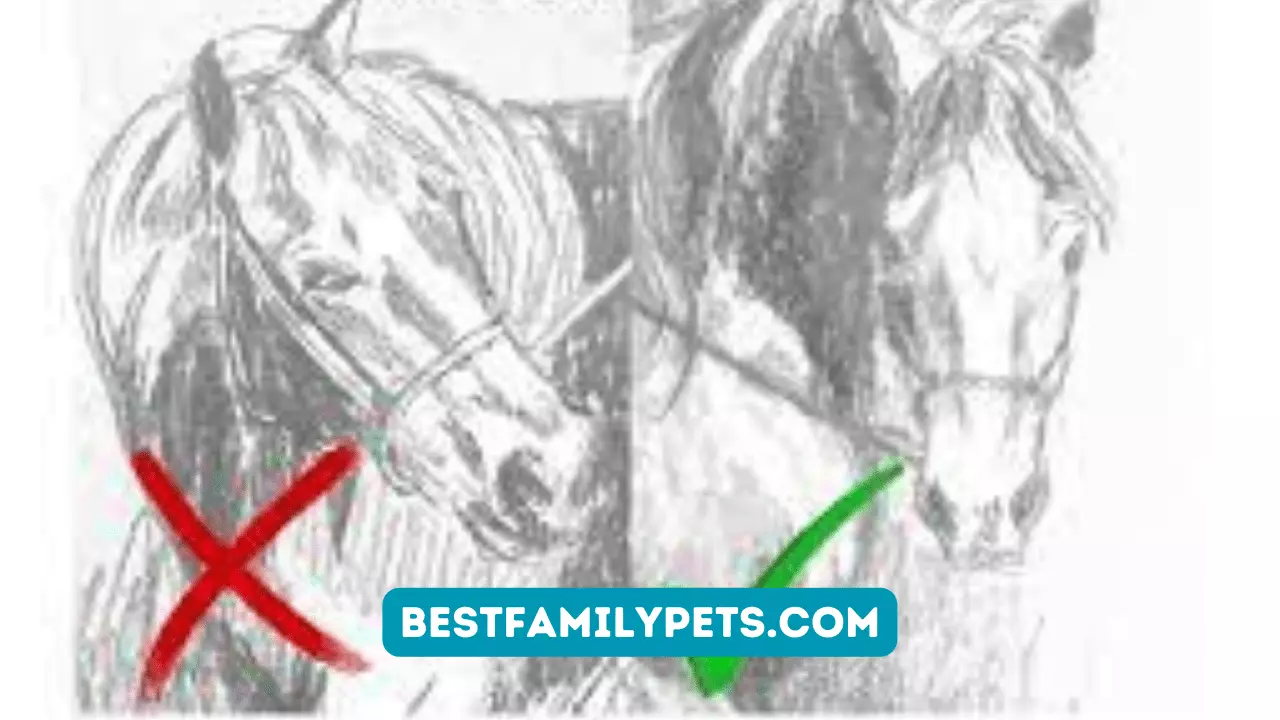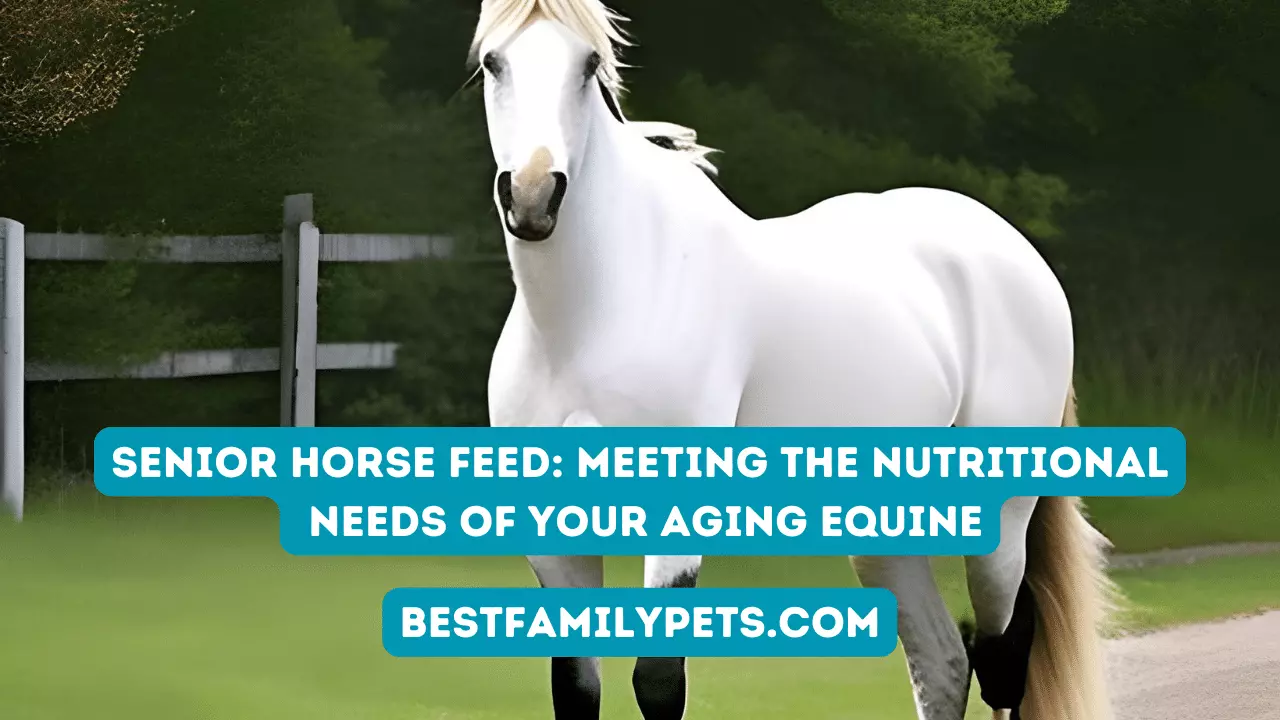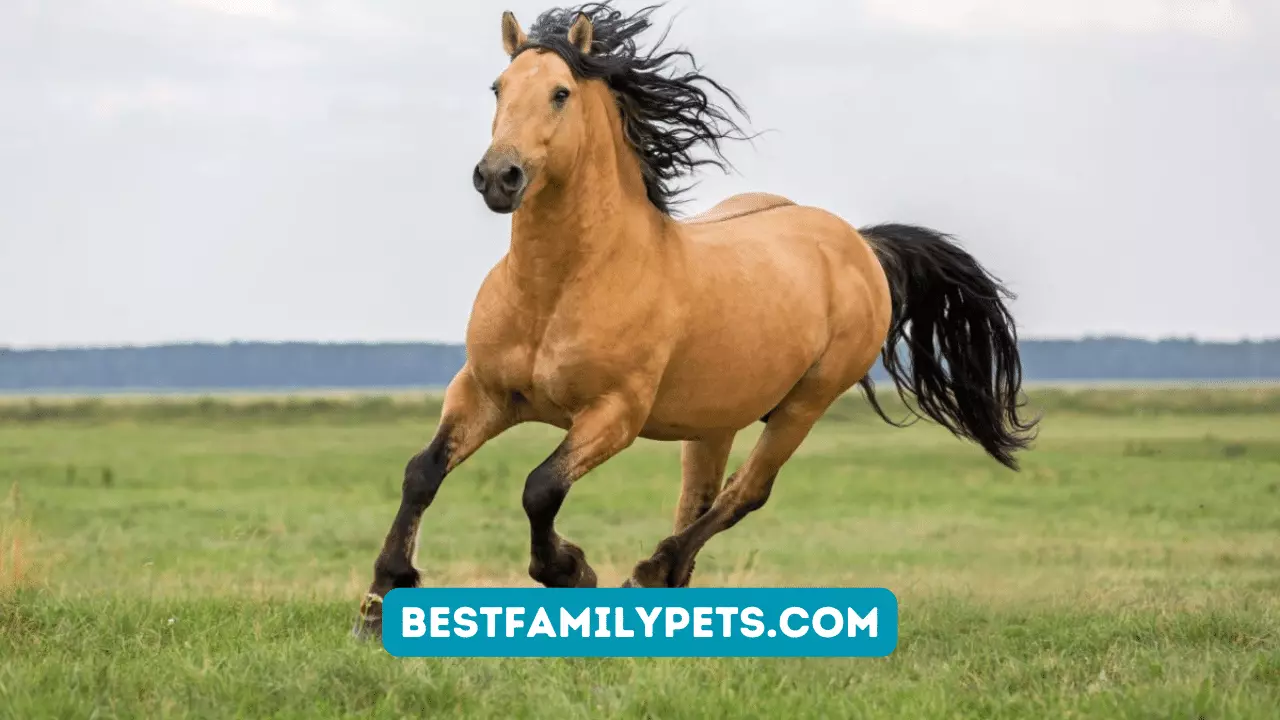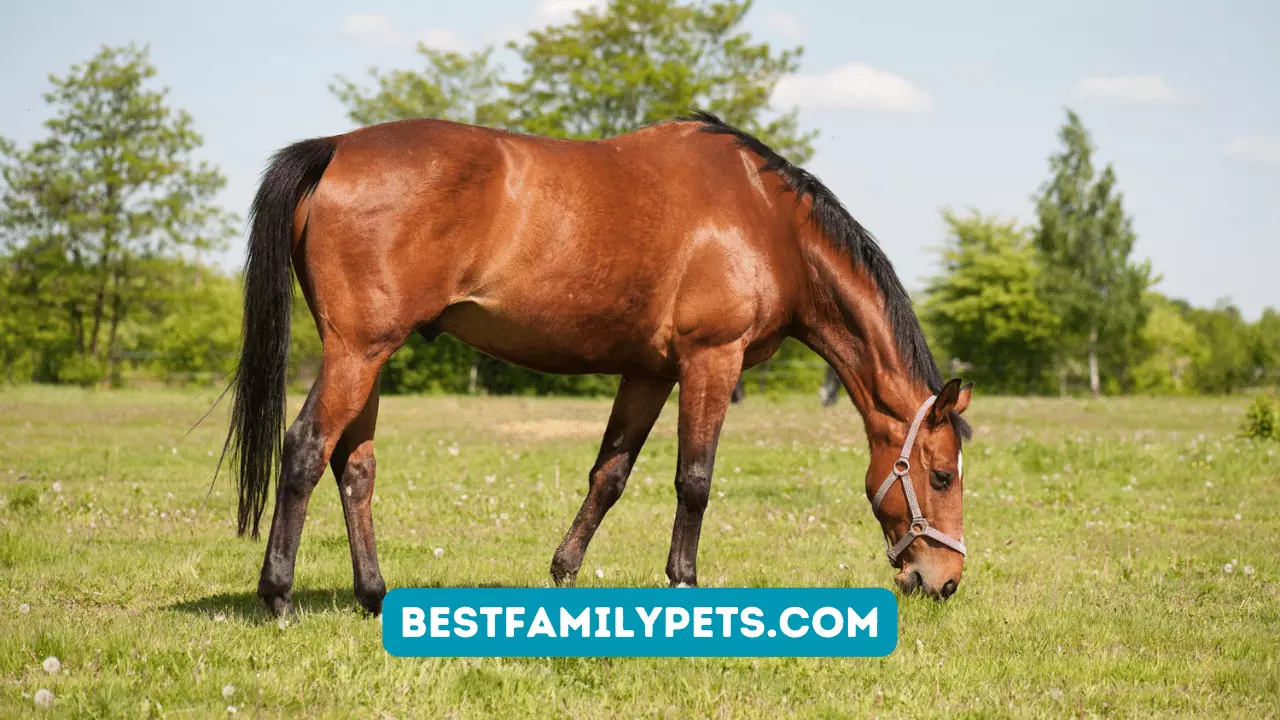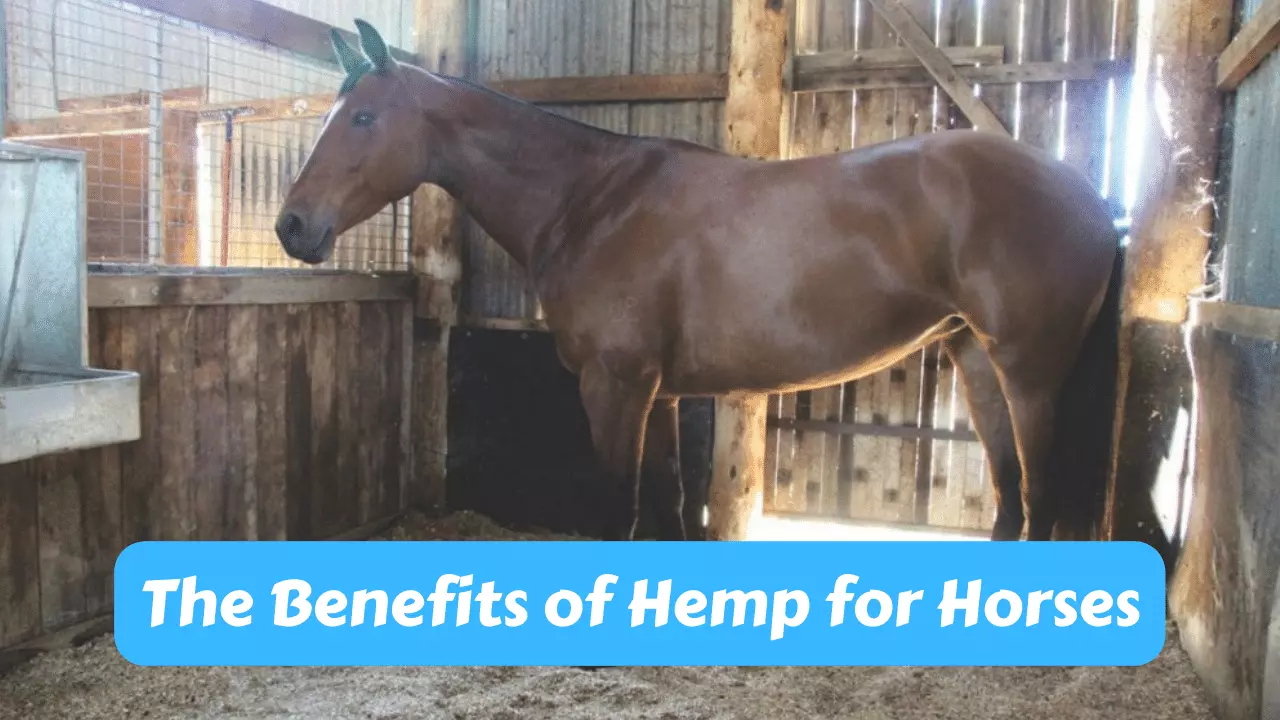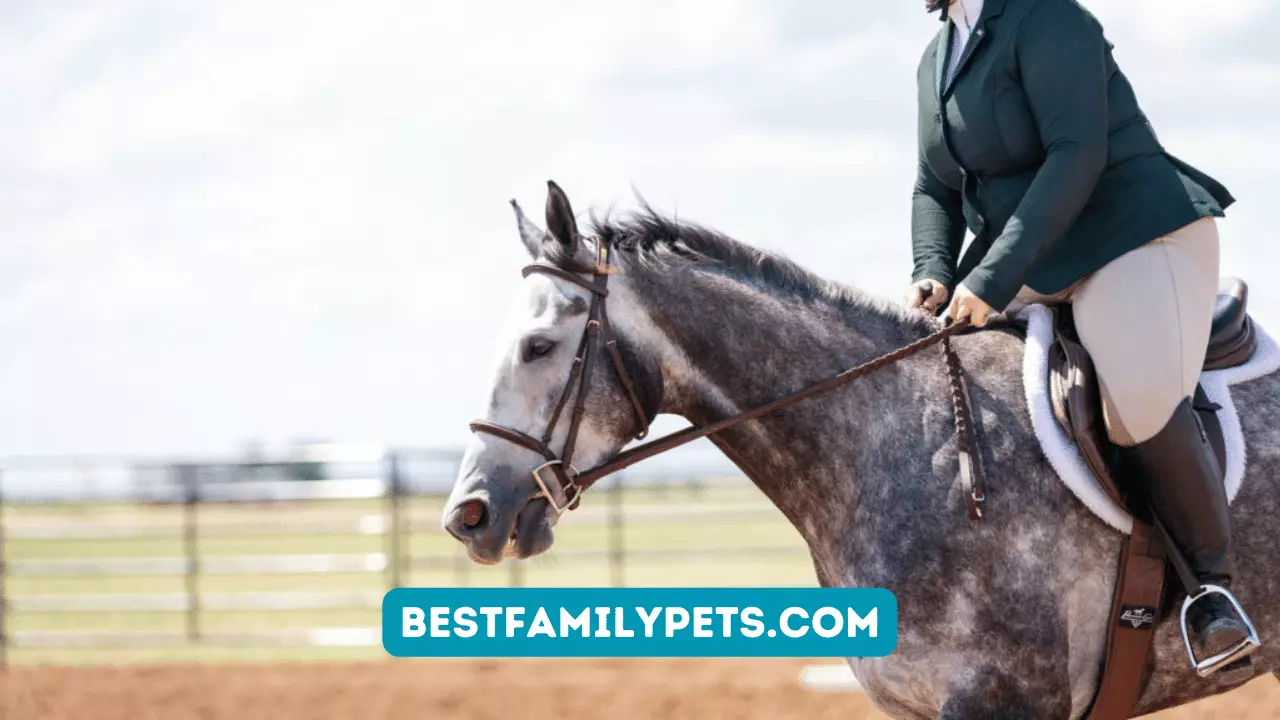Senior Horse Feed: Meeting The Nutritional Needs Of Your Aging Equine
Keep your old horse healthy and strong with senior horse feed. Learn about their nutritional needs and ensure their happiness!
As horses age, their nutritional needs change. Understanding and meeting the dietary requirements of senior horses is crucial to ensure their health and wellbeing in their later years. The aging process can affect a horse’s digestive system, teeth, and overall metabolism, making it essential to provide them with specialized feed that caters to these changes.
Senior horse feed typically contains higher levels of protein, antioxidants, vitamins, minerals, and quality fiber sources compared to traditional horse feeds. A well-balanced diet for an older equine should also include easily digestible carbohydrates and fats to support healthy weight maintenance. In this article, we will explore the importance of proper nutrition for senior horses and how providing them with adequate nourishment can help prevent common health issues associated with aging such as weight loss or dental problems. We will discuss some feeding strategies that owners can implement to meet the unique nutritional requirements of their aging equines.
Understanding The Nutritional Requirements Of Senior Horses
As horses age, their nutritional needs change just as much as their physical abilities. Understanding these changing requirements is essential in caring for senior horses and maintaining their health and well-being. Much like a car that requires different fuel to run optimally at various stages of its life, senior horses require specific nutrients to keep them healthy.
One way seniors’ dietary requirements differ from those of younger animals is the need for more protein. This nutrient aids in muscle maintenance, repair, and growth, all important factors in keeping older equines active and mobile. Aging also leads to decreased digestion efficiency and reduced absorption rates of critical vitamins and minerals such as calcium, phosphorus, magnesium, zinc, copper, selenium among others.
Another significant difference between young and old horses’ diets is fiber intake. Digestive system ageing affects gut motility leading to problems with colic or impaction when fed inappropriate feedstuffs. Senior horse feeds should have increased levels of digestible fibers without compromising on quality ingredients such as beet pulp which has soluble fibers beneficial for hindgut function while low in sugars compared to grains like oats or corn thus reducing risk of laminitis associated with high glycemic index foods.
As we can see from the above discussion aging brings about changes that affect how senior horses process food. There are many benefits to feeding specialized diets that cater to these unique requirements which will be discussed further in the next section highlighting why it’s crucial to take nutrition seriously when dealing with senior equines.
Benefits Of Specialized Senior Horse Feed
Specialized senior horse feed offers a range of benefits for aging equines that cannot be found in traditional feeds. These specialized feeds contain ingredients tailored to the specific nutritional needs of older horses, such as higher levels of protein and fat to maintain muscle mass and body weight. Additionally, senior feeds often include added vitamins and minerals that promote immune function and overall health.
One key benefit of specialized senior horse feed is its impact on digestive health. As horses age, their ability to digest and absorb nutrients declines, leading to issues such as colic and diarrhea. Senior horse feeds are formulated with highly digestible fiber sources that help support healthy gut bacteria and ease digestion. Furthermore, many senior feeds also contain prebiotics or probiotics which can further enhance gut health.
Another advantage of using specialized senior horse feed is its potential effect on joint health. Many senior feeds contain glucosamine and chondroitin sulfate which have been shown to improve joint mobility and reduce inflammation in older horses. This can lead to improved comfort when moving around, increased exercise tolerance, and a better quality of life for the aging equine.
Transition: While specialized senior horse feed can offer numerous benefits for older horses, it’s important to understand the role of individual nutrients in promoting optimal health during this stage of life. In the following section, we will explore key nutrients that should be included in a balanced diet for an aging equine.
Key Nutrients For Older Horses
Ensuring that your aging equine receives the appropriate nutrients is crucial to maintaining its overall health and well-being. Indeed, older horses require a specific set of key nutrients in their diet to ensure they remain healthy and active as they age. These essential nutrients include carbohydrates, proteins, fats, vitamins, minerals, and water.
Carbohydrates are an essential source of energy for senior horses. They come in two forms: simple sugars and complex carbohydrates. Simple sugars provide quick energy boosts while complex carbohydrates break down slowly over time, providing sustained energy levels. Protein intake is also critical for senior horses as it aids in repairing damaged tissues and building new cells. Fats play a vital role in maintaining skin health, temperature regulation, and hormone production.
Vitamins and minerals are necessary components of any horse’s diet but become even more important as horses age. Vitamins such as A, D3, E support immune function while Vitamin C helps maintain healthy joints by supporting collagen growth. Minerals like calcium help maintain bone density while zinc supports hoof growth. In addition to these vital nutrients and water consumption must be closely monitored in senior horses due to their increased risk of dehydration which can lead to further medical issues if left untreated. Understanding these essential nutrients will lay the foundation for successful strategies when feeding your senior horse appropriately without compromising on its nutritional needs or overall health requirements.
Strategies For Feeding Senior Horses
Feeding senior horses requires a strategic approach that takes into account the changing nutritional needs of aging equines. One effective strategy is to provide high-quality forage, which can help maintain intestinal health and prevent weight loss. It is important to choose hay or pasture grasses with lower levels of non-structural carbohydrates (NSC), as these can exacerbate metabolic issues common in older horses.
In addition to providing ample forage, supplementing with senior-specific feeds can also be beneficial. These feeds are designed to meet the unique nutrient requirements of aging horses, such as increased protein and minerals necessary for maintaining muscle mass and bone density. However, it is crucial to avoid overfeeding, as obesity can lead to health problems like laminitis and joint pain.
Overall, feeding senior horses involves careful consideration of their individual needs and health conditions. Regular monitoring of body condition score and consultation with a veterinarian or equine nutritionist can ensure proper nutrition and promote overall well-being in aging equines. In the next section, we will discuss preventive measures for common health issues faced by senior horses.
Preventing Common Health Issues In Aging Equines
As we have discussed in the previous section, implementing proper feeding strategies for senior horses is crucial to meet their nutritional needs. However, feeding alone may not be enough to ensure their overall health and well-being. It is essential to prevent common health issues that aging equines may encounter.
One of the most prevalent health concerns among senior horses is dental problems. As they age, their teeth become less efficient at grinding down feedstuff properly, leading to malnutrition or digestive issues. Therefore, it is vital to provide them with a diet consisting of easily digestible feeds such as chopped hay or beet pulp. Additionally, regular dental check-ups by an equine dentist can help detect any underlying dental diseases early on.
Another issue that commonly affects aging horses is arthritis, which causes inflammation and pain in joints. To manage this condition effectively, providing joint supplements like glucosamine and chondroitin sulfate can work wonders in reducing inflammation and promoting mobility. Additionally, low-impact exercise routines suitable for your horse’s physical capabilities are also beneficial in maintaining healthy joint function.
In summary, feeding senior horses appropriately plays a significant role in meeting their nutritional requirements; however, preventing common health issues should not be overlooked. Regular dental check-ups and incorporating joint supplements along with appropriate exercises into their routine will go a long way in ensuring optimal health and longevity for our beloved aging equines.
Conclusion
As horses age, their nutritional requirements change, and feeding them a balanced diet becomes increasingly important. Specialized senior horse feed is formulated to meet the specific needs of aging equines and provide essential nutrients for optimal health. Understanding these unique requirements can help prevent common health issues associated with aging.
Key nutrients such as protein, fat, fiber, vitamins, and minerals are crucial to maintain body condition and support immune function in older horses. Proper feeding strategies that include frequent small meals and gradual dietary changes can also aid digestion and prevent colic or other gastrointestinal problems. By meeting the nutritional needs of senior horses through specialized feed and proper feeding practices, owners can ensure healthy aging for their beloved equine companions.
-

Hydration Hacks: Ensuring Proper Watering for Your Horse
-



Should Horses be Left Inside or Outside the Field Shelters?
-



How To Identify And Treat Common Back Problems Of Horses?
-



A Detailed Guide About Ifor Williams Horse Trailer
-



What Is Lateral Flexion in Horses, and How to Improve It?
-



Trailer Review: The Sims 4 Horse Ranch Expansion Pack – The Joy of Equestrian
-



Senior Horse Feed: Meeting The Nutritional Needs Of Your Aging Equine
-



5 Ways To Improve Your Horse’s Gut Health
-



5 Ways To Keep Your Horse Healthy
-



The Benefits of Hemp for Horses
-



Four Ways To Be A Better Horseback Rider
-



How to Compete in Your First Horse Show?



